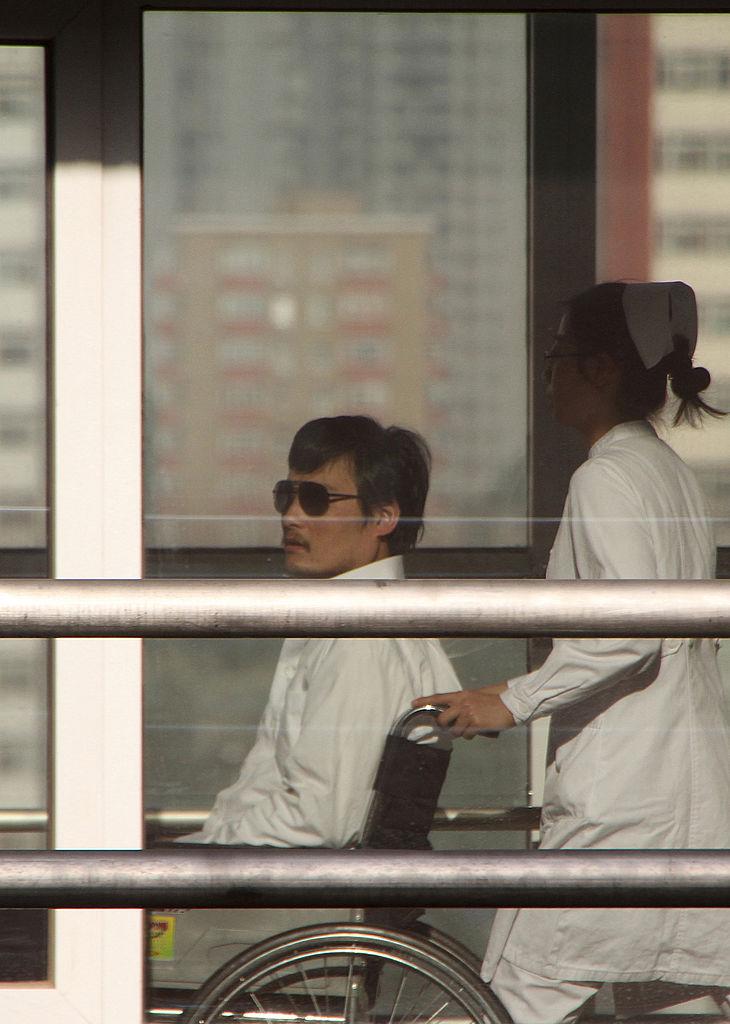A senior State Department staff member who worked in the U.S. embassy in Beijing might have betrayed information concerning a Chinese dissident who sought asylum there in 2012, according to a FBI investigation. While the dissident in question has not been publicly named, the timing and location revealed by the investigators suggest that it almost certainly concerns the case of Chen Guangchen, a Chinese human rights lawyer who gained international attention in 2012 for escaping house arrest and making his way to the U.S. Embassy in Beijing.
According to a Department of Justice release, Candace Marie Claiborne, who worked in the Caucasus Affairs office of the State Department and had served multiple tours of duty in the U.S. embassy in Beijing was arrested on Tuesday and charged with two felony offenses for obstructing an official proceeding and making false statements to FBI investigators.
“Candace Marie Claiborne is a U.S. State Department employee who possesses a Top Secret security clearance and allegedly failed to report her contacts with Chinese foreign intelligence agents who provided her with thousands of dollars of gifts and benefits,” said Acting Assistant Attorney General Mary B. McCord, “Claiborne used her position and her access to sensitive diplomatic data for personal profit.”
The criminal complaint from the Department of Justice revealed that Claiborne wrote in her journal that she could “generate 20K in 1 year” by betraying classified information from her work with Chinese intelligence agents. Allegedly Claiborne even requested Chinese agents to pay the school tuition, rent, and other living and travel expenses for a young man she was cohabitating with.
Chinese Dissident Betrayed
The complaint is vague as to what extent Claiborne, an office management specialist in the State Department, could have compromised classified information throughout her years of work. The FBI said that Claiborne admitted Tuesday at an FBI office in Washington D.C. that she had leaked information about a certain Chinese dissident being secretly housed at the U.S. embassy in Beijing in April and May 2012. Claiborne was stationed at the embassy at the time.
Chen Guangchen, a blind Chinese human rights lawyer and one of the most prominent dissidents persecuted by the Chinese government, escaped house arrest in April 2012 and secretly entered the U.S. embassy in Beijing to seek refuge on April 22. When news of Chen’s escape emerged a few days later, it gained international attention and was a major embarrassment to the Chinese government.





